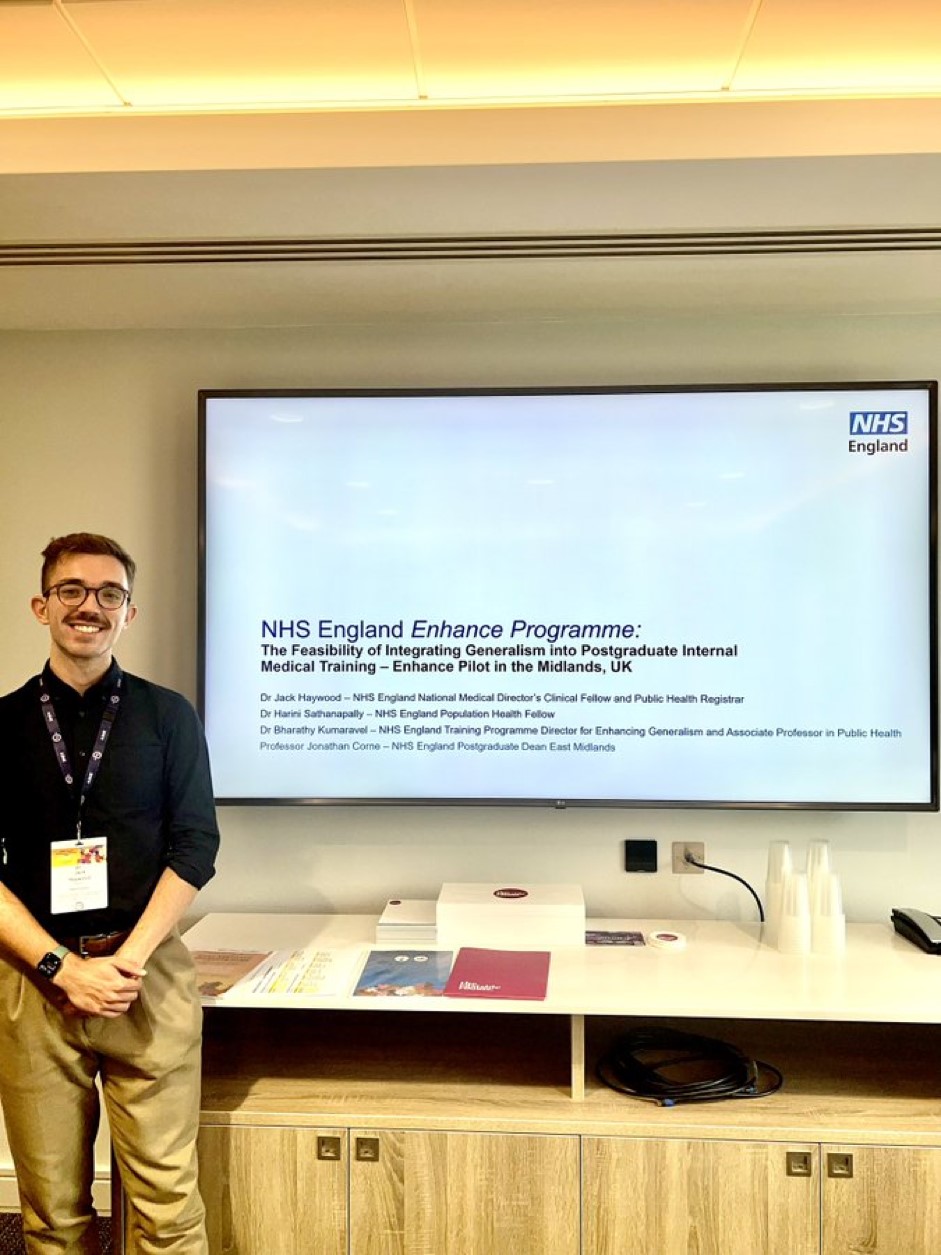July 2023

We presented the findings from our focus group with IMT trainees who took part in the Midlands Enhance Trailblazer at the AoME and ASME ASM Conferences. It was a great opportunity to highlight the Enhance Programme and the factors that need to be considered when integrating generalism into specialist training programmes. The interest from the audience members was very good, with many applauding efforts to prepare doctors for the healthcare challenges of the future. We look forward to building on our knowledge base in the coming months to further improve the programme
May 2023
Generalism for specialists
Tomorrow’s doctors need to appreciate that health is beyond just diagnosis and treatment of specific conditions. An ageing population is more likely to have multiple morbidities (long-term conditions). For instance, it is common for an 80-year-old patient to present with diabetes, hypertension, COPD, and depression. The challenges of multimorbidity are that patients present with complex self-care needs; care is provided by several teams often in isolation, resulting in fragmented care and an increased use of resources- including emergency healthcare.
Socioeconomic deprivation can add a further layer of complexity while providing health and well-being care for someone with multi-morbidity. Doctors need to consider the role of social determinants of health while providing care for their patients.
Advances in healthcare have helped in the management of individual long-term conditions, thereby adding years to our lives. However, to improve the quality of life in later years, doctors need Generalism skills to deal with multiple long-term conditions. General practitioners, diabetologists and geriatricians already appreciate this challenge and work in teams to provide holistic patient care.
We need to change the way we train future doctors. We need a shift away from the current model to integrating Generalism into all specialities, not just a few.
Medical education has traditionally been designed around individual specialities (such as medicine, surgery, obstetrics and gynaecology, cardiology, and ophthalmology). It focuses on training future doctors on the pathology, diagnosis, and treatment of individual health conditions. We need to integrate Generalism training into medical education - providing
- person centred care
- appreciating population health
- advocating for social justice
- tackling health inequalities
- providing sustainable healthcare
- dealing with complex multimorbidity
NHS England is piloting the introduction of Generalism into various levels of health education. In the Midlands, we are integrating Generalism into Internal Medicine Training. Work is still in progress; however, it is reassuring to learn that the new curriculum is offering the training and immersive experiences needed for Generalism. Our Enhance IMT trainees have started demonstrating leadership skills- advocating, and influencing across boundaries.
We are taking a critical approach to inquiry with key stakeholders- trainees, faculty, administrators, general practitioners, hospital consultants, community trusts, public health colleagues and the voluntary sector to co-create the curriculum. We recently held a stakeholder engagement event to learn about their perceptions and take their views on board while reviewing our program.
- Dr. Bharathy Kumaravel, Midlands Enhance Training Programme Director